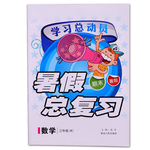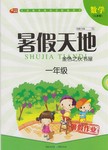
Human Relations
----- By Marion Williams
A boy was born to a couple after eleven years of marriage. They were a loving couple and you can imagine how excited they were. Certainly the boy was 1 as the apple of their eyes.
One morning, the husband saw a medicine bottle 2 .As he was late for work, he asked his wife to cap the bottle and ___3____. The mother, who was busy in the kitchen, 4 the matter. The boy playfully went to the medicine bottle, was 5 with its color,and drank it all. It 6 to be a poisonous medicine 7 adults in small dosages. When the child showed signs of poisoning, the mother took him to the hospital, 8 he died. The mother was stunned(使昏迷).She was too 9 to face her husband. When the 10 father came to the hospital and saw the dead child, he 11 his wife and uttered just four words.
The husband just said “ 12 ”
The husaband was indeed 13 in human relationships.The child was dead. He could 14 be brought back to life. There was no 15 in finding fault with the mother. 16 , if only he had taken time to keep the bottle in the cupboard or other place, this would not have happened. No one is 17 . She had also lost her only child .What she needed at that moment was consolation(安慰,慰藉) and 18 from the husband. That was what he gave her.
If everyone can look at life with this kind of perspective(观点), there would be much fewer problems in the world. Sometimes we spend time in asking who is 19 or whom to blame, whether in a relationship, in a job or with the people we know. By this way we 20 some warmth in human relationship .
1.A.treated B.thought C.ignored D.abandoned
2.A.shut B.close C.bare D.open
3.A.put it aside B.set it aside C.put it away D.leave it alone
4.A.completely forgetting B.wholly terrified
C.totally forgot D.absolutely remembered
5.A.satisfied B.fascinated C.puzzled D.calmed
6.A.happened B.seemed C.appeared D.uttered
7.A.stood for B.made for C.meant for D.called for
8.. A.when B.then C.but D.where
9.A.ashamed B.frightened C.annoyed D.worried
10.A.awful B.angry C.distraught D.patient
11.A.looked at B.stared at C.glared at D.amazed at
12.A.I hate you, now. B.How do you do?
C.How did this happen? D.I love you, Darling.
13.A.a idiot B.a genius C.a success D.a evil
14.A.never B.seldom C.even D.once
15.A.wonder B.point C.pleasure D.worry
16.A.Therefore B.Otherwise C.Besides D.However
17.A.to blame B.to be blamed C.to be accused D.to be noticed
18.A.explanation B.courage C.excuse D.sympathy
19.A.suitable B.believable C.accessible D.responsible
20.A.make out B.look out C.stand out D.miss out
1---20 ADCCB ACDBC ADBAB CADDD
一各男孩诞生于一对夫妇结婚11 年之后。 他们是一对恩爱的夫妇,男孩是他们的掌上明珠。 当男孩约在两岁时,一天早上,丈夫看见一瓶药瓶打开了。 由于他上班快迟到了,所以他要他的妻把这药瓶放在碗柜里 。他的妻子全神贯注在厨房里,忘了此事。 男孩子看见这药瓶并且被它的颜色迷住,要拿这瓶玩,并且喝光它。 它碰巧是一种小剂量方面计划是要给成年人的有毒的药。当孩子倒下时,他母亲急忙的送他到医院。他死了,母亲被吓昏了。 她害怕的不知如何面对她的丈夫。当这精神涣散的父亲来到医院,看见死亡的孩子时,他看了他的妻子并且仅仅说了4 个字......。
1.A。treat…as…“把…….视为/看作”,如:He treated his mistake as a joke. 他把他的错误当作玩笑看待。;think of……as….;ignore不理睬;忽视,及物动词。如:I tried to tell her but she ignored me. 我打算告诉她,可是她不理睬我。又如:"Ignore the child if he misbehaves, and he'll soon stop." "小孩不乖时,别去理他,不久他就会不闹了。";abandon也是及物动词,意为“抛弃;舍弃;离弃”,如:abandon one's home离弃家园,又如:They abandoned the game because of rain. 因为下雨比赛停止了。
2.D。根据后面的cap(vt.盖上),可以看出,此处应填open(adj. 开着的, 敞开的);shut(v.关闭,关上);close adj. 近的, 紧密的;bare adj. 赤裸的, 无遮蔽的, 空的。
3.C。put…away“收起来放好,保存好”;put…aside“(暂时)放在一边”;set…aside “取消, 驳回”;leave… alone“不关,不理”。只有C符合句意。
4.C。根据句意“在厨房忙…的母亲完全忘了这件事。”此处是谓语,who…是个非限制性定语从句。本题易误选A。
5.B。fascinate迷住, 使神魂颠倒; 吸引; 使感兴趣,如:The changing vivid colours of the sunset fascinated the eye. 日落时变化多端的色彩使人看得入迷。其它选项不符合语境意思。又如:He's fascinated with Buddhist ceremonies. 他迷上了佛教的仪式。
6.A。happen to(和名词连用)临到...头上(某情况, 尤指不幸的事); (和动词连用)偶然; 碰巧,如:I happened to be in the market yesterday when a fire started. 昨天发生火灾时,我正好在市场上。又如:I happened to see Peter on the way to the bookstore yesterday. 昨天我去书店的路上碰巧遇见了彼得。It seems to be…(似乎)和It appears to…不符合句意;utter“发出, 做声, 发表”。
7.C。mean“意欲;意思是”,meant for为过去分词作定语。mean sth. for sb.如:He means this house for his daughter. 他预定把这栋房子给女儿。This was meant for a joke. 这是笑话,又如:He was meant for [to be] a doctor. 本来是准备把他培养成为医生的。Stand for“代表, 代替, 象征, 支持”;call for“要求, 提倡, 为...叫喊”;make for“最理想的,最适宜的,配合,移向;走向” 如:be made for each other是天生的一对,又如:The large print makes for easier reading.大号字体便于阅读。本题易误选B。
8.D。where引导非限制性定语从句。Then多数情况下表顺序,如:He had a bath and then went to bed. 他洗了个澡,然后睡觉了。I cooked the meat and then I washed the pot. 我烧好肉,然后刷了锅。本题易误选C。
9.B。frightened“受惊吓的,害怕的”;ashamed“惭愧的, 羞耻的”;annoyed “使不高兴, 使烦恼”,如:I was annoyed by his bad manners. 他的无礼使我恼怒。;worried“闷闷不乐的,为难的,焦虑的”。
10.C。distraught“心神错乱的; 发狂的”;awful“可怕的, 威严的, <口>极度的, 糟糕的”;根据语境,只有C和句意吻合。本题易误选D。
11.A。根据上下文可以看出答案是looked at“看”:stare at“盯着看(at); 凝视; 瞪眼看”,如:He stared at the word trying to remember what it meant. 他盯着这个单词,努力想记起它的意思。;glare at“怒目而视”,指由于“羡幕、恐惧、惊讶或愚蠢而用恐吓、凶狠或愤怒的眼光看”如:The old gentleman just stood there glaring at the pickpocket and did not say a word. "这位老先生只是站在那里对那个扒手怒目而视,一句话也没有说。";amaze at“使惊奇;使吃惊”,如: Her knowledge amazes me. 她的学识令我吃惊。又如:I was amazed by the news of George's sudden death. 听到乔治突然去逝的消息,我感到惊愕。本题易误选B。
12.D。根据下文内容不难看出答案。
13.B。genius“天才,天才人物”,如:Einstein was a genius. 爱因斯坦是一个天才。;a idiot“白痴, 愚人, 傻瓜”;a success“成功的人或事”;a failure“失败的人或事”
14.A。never“永不;决不”,其它词不符合语境。
15.B。考查对上下文的理解。孩子已经死了,再追究...就没有意义了。point“要点;意/含义;论点;寓意”如:I don't see the point of waiting for her, she is probably not coming. 我不知道等她有什么意义,她可能不来了。I don’t see your point. 我不懂你的意思。
16.C。Besides“另外; 此外”起补充作用,如:It's too late to go to the basketball match now; besides it's beginning to rain. 现在去看篮球比赛已经太晚了, 何况, 又开始下雨了。Therefore“因此, 所以”,含有因果关系,不合适; Otherwise“(用于推论)因而,因此”We do not have enough money. Therefore we cannot afford to buy the new car. 我们的钱不够,因此买不成这辆新车。However“虽然如此, 可是, 仍然, 然而”
17.A。be to blame [习惯用语] “应受谴责”,如:The children were not to blame. 孩子们不应受到谴责。The driver was not to blame for the traffic accident. 那次交通事故不应该责怪司机。accuse“控诉; 起诉”, accuse sb. of ... [习惯用语]“ 指控某人...”,如:He was accused of stealing by the police. 警方控告他犯有盗窃罪。本题易误选B。
18.D。根据前面的consolation 的含义,可以判断出and后应用sympathy“同情; 怜悯”; explanation“解释”;courage“勇气”;excuse“借口,理由”,都不符合语境。
19.D。根据后面的or whom to blame,可以判断出答案。accessible “容易取得的;容易接近的,容易受影响的”。本题易误选B。
20.D。miss out“遗漏”;make out“说明, 设法应付, 理解, 辨认出,了解”;look out“留神, 照料”;stand out “站出来, 突出, 坚持抵抗,醒目”。


 学期复习一本通学习总动员期末加暑假延边人民出版社系列答案
学期复习一本通学习总动员期末加暑假延边人民出版社系列答案 芒果教辅暑假天地重庆出版社系列答案
芒果教辅暑假天地重庆出版社系列答案科目:高中英语 来源: 题型:
I think John will a good monitor, so I’d like to vote for him.
A. turn B.change C.elect D.make
查看答案和解析>>
科目:高中英语 来源: 题型:
The storm sweeping over this area now is sure to cause _____ of vegetables in the coming days.
A. rarity B. scarcity C. invalidity D. variety
查看答案和解析>>
科目:高中英语 来源: 题型:
Tom didn’t like to study at school and later .
A.dropped in B.dropped out
C.dropped on D.dropped off
查看答案和解析>>
科目:高中英语 来源: 题型:
As he had no friends and relatives in the town, the traveler tried to find a _____ somewhere.
A. log B. lodge C. landing D. lodging
查看答案和解析>>
科目:高中英语 来源: 题型:阅读理解
The discovery of a dwarfed (矮个的)”human being” who lived in Flores .Indonesia, up to 18,000 years ago is changing the way we think about the human family .This “Flores Human”was three foot tall and her brain was smaller than that of the average chimp (黑猩猩),yet she and her relatives apparently lived fully human lives.They seem to have made tools ,worked together to find food and cook it,and perhaps even buried their dead with ceremony.
It was a major surprise to find tools associated with the new human family member .The tools are like those formerly seen only with European fossils (化石)from our own species;Homo sapiens (智人);and the oldest of them were made 94,000 years ago .Homo sapiens is thought to have arrived in the island about 40,000 years ago ,much too late to be responsible for the tools .If this tiny human made the tools ,them the inside structure (结构)of its brain must have been more like our own than a chimp’s ,despite being just a third the size of ours.
This “new human” was suspected to be a dwarfed branch of Homo erectus (直立人).When creatures are separated in regions with rare resources but few enemies,being big is a disadvantage, and evolution tends to shrink them, a process known as island dwarfing.Could natural selection make a human smaller while keeping — even improving — mental ability ?Quite possibly, believes Christopher Wills of the University of California.
Has the “Flores Human” even shown the ability of language? “I find it difficult to imagine that people could make tools,use fire ,and kill large animals without fairly advanced communication.” Wills says .Did “Flores Human” possess the basic components of human culture — such as the burying of the dead with ceremony ? Emiliano Bruner of the Italian Institute points out that Indonesia’s hot, wet environment is bad for fossilization.It is reasonable to assume , he says ,that the 18,000-year-old bones of the most complete Flores woman were well-preserved because she was buried with special care.
67.According to the passage , “Flores Human”______.
A.lived a partly human life B.was a branch of Homo sapiens
C.used tools before Homo sapiens arrived D.had a brain as a common chimp’s
68.The underlined part “this tiny human”in Paragraph 2 refers to _______.
A.a chimp . B.Flores Human C.Homo sapiens D.Homo erectus
69.This passage mainly talks about______.
A.the tools made by “Flores Human” B.the language used by “Flores Human”
C.the evolution of “Flores Human” D. the major surprising findings about “Flores Human”
70.According to the passage ,it is believed that “Flores Human”_______.
A.was dwarfed by its enemies B.could use language
C.left a lot of fossils in hot and wet enviroment D.reached Flores 40,000 years ago
查看答案和解析>>
科目:高中英语 来源: 题型:阅读理解
One afternoon I was sitting at my favorite table in a restaurant, waiting for the food I had ordered to arrive. Suddenly I ___36___ that a man sitting at a table near the window kept glancing in my direction, ___37___ he knew me. The man had a newspaper ___38___ in front of him, which he was ___39___ to read, but I could ___40___ that he was keeping an eye on me. When the waiter brought my ___41___the man was clearly puzzled (困惑) by the ___42___ way in which the waiter and I ___43___each other. He seemed even more puzzled as ___44___went on and it became ___45___that all the waiters in the restaurant knew me. Finally he got up and went into the ___46___. When he came out, he paid his bill and ___47___without another glance in my direction.
I called the owner of the restaurant and asked what the man had ___48___. “Well,” he said, “that man was a detective (侦探). He ___49___ you here because he thought you were the man he ___50___. ” “What? ” I said, showing my ___51___. The owner continued, “He came into the kitchen and showed me a photo of the wanted man. I ___52___ say he looked very much like you! Of course, since we know you, we told him that he had made a ___53___. ” “Well, it’s really ___54___I came to a restaurant where I’m known, ” I said. “___55___, I might have been in trouble.”
36. A. knew B. understood C. noticed D. recognized
37. A. since B. even if C. though D. as if
38. A. flat B. open C. cut D. fixed
39. A. hoping B. thinking C. pretending D. continuing
40. A. see B. find C. guess D. learn
41. A. menu B. bill C. paper D. food
42. A. direct B. familiar C. strange D. funny
43. A. chatted with B. looked at C. laughed at D. talked about
44. A. the waiter B. time C. I D. the dinner
45. A. true B. hopeful C. clear D. possible
46. A. restaurant B. washroom C. office D. kitchen
47. A. left B. acted C. sat down D. calmed down
48. A. wanted B. tried C. ordered D. wished
49. A. met B. caught C. followed D. discovered
50. A. was to beat B. was dealing with C. was to meet D. was looking for
51. A. care B. surprise C. worry D. regret
52. A. must B. can C. need D. may
53. A. discovery B. mistake C. decision D. fortune
54. A. a pity B. natural C. a chance D. lucky
55. A. Thus B. However C. Otherwise D. Therefore
查看答案和解析>>
科目:高中英语 来源: 题型:
1.It is______world of wonders, _________world where anything can happen.
A. a; the B. a; a C. the; a D. /; /
查看答案和解析>>
湖北省互联网违法和不良信息举报平台 | 网上有害信息举报专区 | 电信诈骗举报专区 | 涉历史虚无主义有害信息举报专区 | 涉企侵权举报专区
违法和不良信息举报电话:027-86699610 举报邮箱:58377363@163.com